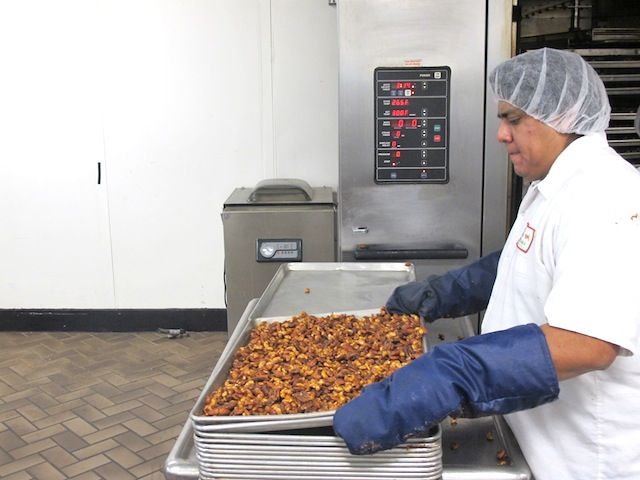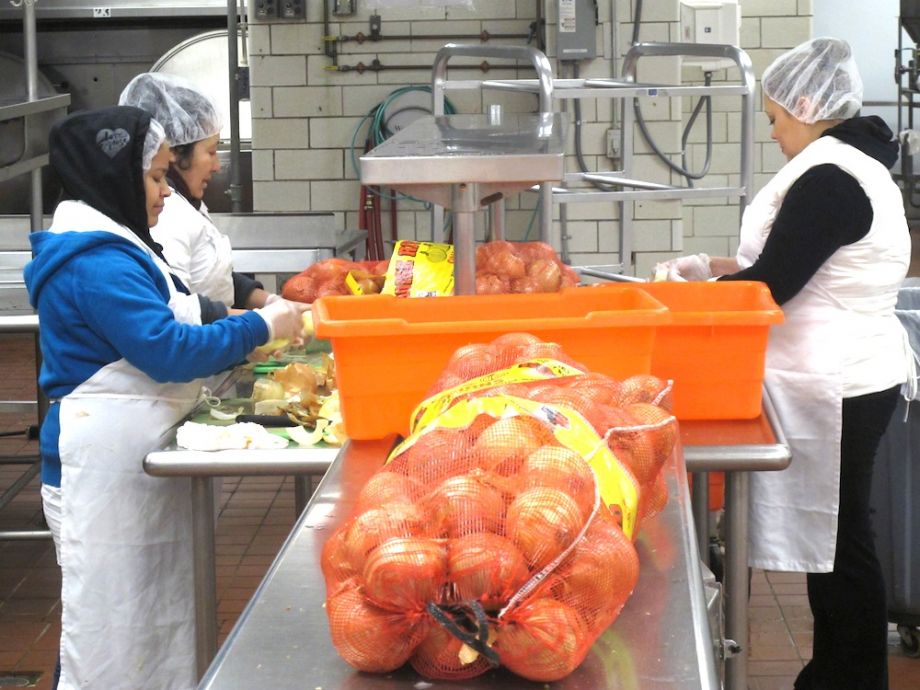When we think of factories, we tend to think of old tropes captured in black-and-white photos: The assembly line, tool-and-die shops, Americans earning a good old-fashioned living with a hard day’s work. Last month I visited a different kind of factory in New York’s Hudson Valley, one where men and women chop onions, flash freeze broccoli and make industrial quantities of tomato sauce from farm-fresh tomatoes.
Industrial food processing — taking excess crops and turning them into something that will last — has given local farmers more revenue streams and brought more fresh produce into urban grocery stores. And just outside Kingston, N.Y., Farm to Table Co-Packers has been churning out fresh goods since it set up shop in an old IBM facility in June 2010.
Food infrastructure is more than your local farmers’ market. Indeed, those farmers often must figure out what to do with the produce they didn’t bring to market. Which is why Jim Hyland, Farm to Table’s CEO, started the company. Winter Sun Farms, a CSA Hyland runs out of nearby New Paltz that distributes to everywhere from Brooklyn to Metro Philadelphia, was dealing with farmers who had nowhere to process their surplus vegetables. The bumper crop, as the excess is called, often ended up in the compost pile.
“The choice was either stop doing Winter Sun Farms or figure out a way to make it work,” Hyland told me. So they bought an old, vacant IBM facility and set up shop in its commissary, which used to serve employees up to 7,500 meals per day. To say it took a bit of retrofitting to get the building ready would be an understatement. “It was raining in here,” Hyland said. “The roofs were leaking.”

Farm to Table works with everything from nuts to tomatoes. Credit: Bill Bradley
Hyland said that Farm to Table has 25 full-time employees year-round and another 25 seasonal employees when harvest ramps up. (It pales in comparison to the 7,100 that worked at IBM during its peak, though it exceeds the expectations of an abandoned factory.) In addition to jobs created at the plant, the operation helps keep farmers in business and sends fresh food to grocery stores. And it isn’t only about sending fresh kale to Brooklyn — it’s about sustaining the greater agricultural network of the Hudson Valley.
“This is a project that is working with literally over 70 regional farms,” Erling said. “Sometimes the fresh market just can’t absorb [bumper crop]. And we’ve given farmers some flexibility and developed new market potentials.”
On a recent tour of the Farm to Table plant, Erling and Nyland both mentioned the company’s work with Bard College and The New School. They have also tried working with local public schools. Currently, the price point is difficult for some public schools and hospitals to work into their budget. But as the market grows and co-packers work on efficiency, you may see more flash-frozen and locally sourced ingredients in public schools.
The Equity Factor is made possible with the support of the Surdna Foundation.

Bill Bradley is a writer and reporter living in Brooklyn. His work has appeared in Deadspin, GQ, and Vanity Fair, among others.

















